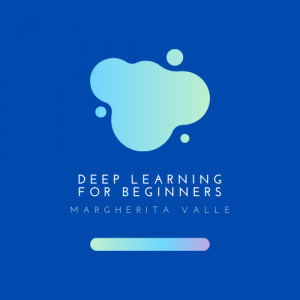Deep Learning technologies can help identify and monitor the spread of the virus that has turned our lives upside down by ripping away our freedom and carefreeness. This sounds like a piece of encouraging news, doesn’t it? However, it happens at some cost. The effectiveness of this application highly depends on our willingness to share personal data, without exactly knowing how, when, and from whom it is processed and analyzed.
If you were browsing on the Internet during the last weeks, you might have come across articles about how China is managing the gradual recovery to normality. Therefore, things like AI cameras that use facial recognition to report people who are not wearing hygienic masks, and scan bodies’ temperature or even applications that assign colors to people depending on their health conditions, won’t be a shocking discovery for you. However, if you have never heard about that before, it might sound a little bit creepy and intrusive (to be honest, it’s still disturbing even if I read about it hundreds of times).
However, Deep Learning can play a key role in knocking down the spread of the pandemic and in helping us to better manage a further possible crisis. If you still find everything sinister, have a look at the two main reasons why you should change your mind about it:
Contributing to find a cure for the disease
Deep Learning can significantly speed up a research process that usually takes years and years for human beings to complete. First of all, it helps medical experts by cross-referencing and scanning tons of scientific papers in order to identify patterns and rules. For example, to discover factors that might make the virus worse for some patients than others, or conditions under which the virus spread easily. At the moment, AI and Deep Learning algorithms have already saved many months of experimentations to all the scientists and researchers around the world who are dealing with the study of COVID-19. Through the mechanism of classification of patterns and definition of rules (check my first blog post if you don’t know what I’m talking about) Deep Learning is making remarkable progress in the study of the virus protein structure. Indeed, knowing a protein structure is an essential element for understanding how it functions and how the virus can spread. Thanks to open access databases and cutting edge Softwares, labs and scientists can share their discoveries on the genomes of the virus. One example is DeepMind, a subsidiary of Alphabet (parent company of Google). Its team of scientists, machine learning experts, and engineers provided a system that predicts the structures of different proteins associated with the virus causing COVID-19. These structures are published under an open license to grant access to all the researchers in the field.
Forecasting the pandemic and improving health services
Deep Learning could support health experts and governments in providing better and more functional services. One example is offered by Alibaba Damo Academy (Alibaba Group’s research and innovation institute). The Academy realized an AI-enabled system that diagnoses COVID-19 through computed tomography scans of the chest, all in 20 seconds, and with 96% accuracy. The algorithm can provide diagnosis and monitor treatment responses in COVID-19 patients. When dealing with a viral outbreak, training every medical practitioner it’s a demanding task that requires time. However, Deep Learning technologies can rapidly provide us with precise information, by supporting the medical staff in diagnosis and treatment processes. At the moment, this system is being used by over 26 hospitals in China and has already diagnosed more than 30.000 cases.
AI can be employed to improve public health surveillance. One example is provided by BlueDot, a Canadian company that developed a cloud-based GIS platform to detect disease outbreaks and monitor their spread. According to the founder and CEO of BlueDot, the company has to “Spread knowledge faster than the diseases spread themselves”. In order to do so, it uses Deep Learning to continuously review data sets and extract the relevant information. The sources range from demographic data to climate data, news, statements from official public health organizations, livestock health reports, and many more. Moreover, by monitoring global airline ticketing data, the software can help to anticipate where the infections might travel.
Apparently, Deep Learning is profoundly involved in responding to this pandemic and will probably be increasingly so. However, even when dealing with an emergency situation, particular attention must be directed toward data protection measures. Tracking data and increasing citizens’ surveillance have become now the hottest and most discussed topics. If the benefits are not yet clear, the risks seem to be numerous but totally unknown.
And you? What do you think about Deep Learning and Big data employed to combat the spread of the virus? Are you willing to share your data or are you too afraid about its consequences? Let me know in the comment section below 🙂
If you want to know more about Deep Learning and its applications, click the image below and check my other articles! 🙂
References:
Photo by Margherita Valle created with Canva
‘The new normal’: China’s excessive coronavirus public monitoring could be here to stay
AI and control of Covid-19 coronavirus
Researchers Will Deploy AI to Better Understand Coronavirus
How this Canadian start-up spotted coronavirus before everyone else knew about it
Così big data e intelligenza artificiale stanno battendo il coronavirus in Cina





Hi Margherita
Thanks for sharing your blog.
Well, I just came across another Covid-19 article you might find interesting: https://www.thelancet.com/journals/landig/article/PIIS2589-7500(20)30054-6/fulltext
In my eyes, it’s thin line between using technology to fight against Covid-19 and privacy protection. Who knows what happens with our data after overcoming the current situation. Will it be stored anywhere and still accessible for other companies?
Looking forward to read your next insightful blog.
Cheers,
Lorenz
Hi Lorenz
thank you for sharing this relevant article!
It’s very difficult to take a position at this moment. On the one hand, it seems AI could really improve the health system, reduce the number of deaths, and keep track of the virus spreading. Moreover, predicting times and zones of the pandemic could eventually help to stabilise financial markets. On the other hand, who knows how this data will be used and stored?
See you soon hopefully! 🙂
Hi Margherita, really interesting insights and great examples of companies who are currently developing and using this technology for the better. i also thought about data sharing and privacy in one of my blog articles and think that as long as it helps the greater good I am willing to share it. I also wouldn’t mind public surveillance as this is already done for security reasons in many public spaces anyways.
Hi Katharina
it’s nice to hear your opinion about this hot and debated topic!
I’m not sure yet about my position, but I see many advantages in the application of AI to track and monitor the spread of the virus. The only thing, I’m not sure how much we can trust governments and public institutions and I guess it definitely changes considerably from country to country.
Hi Margherita.
Thank you very much for writing an article about this topic! I was indeed very curious to learn more and have a clearer overview of what’s going on in this area. I noticed that also in Italy they will implement a Coronavirus-tracking App, it’s called Immuni. See you! 🙂
Hi Cristina.
Glad that you found the article insightful.
Hope to see you on the next blog post 🙂